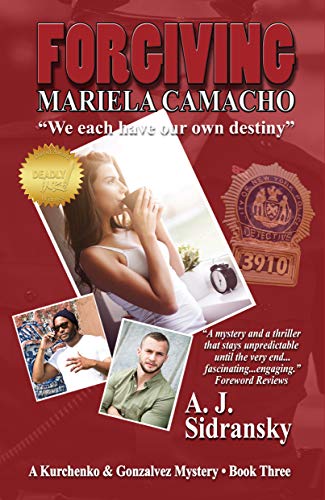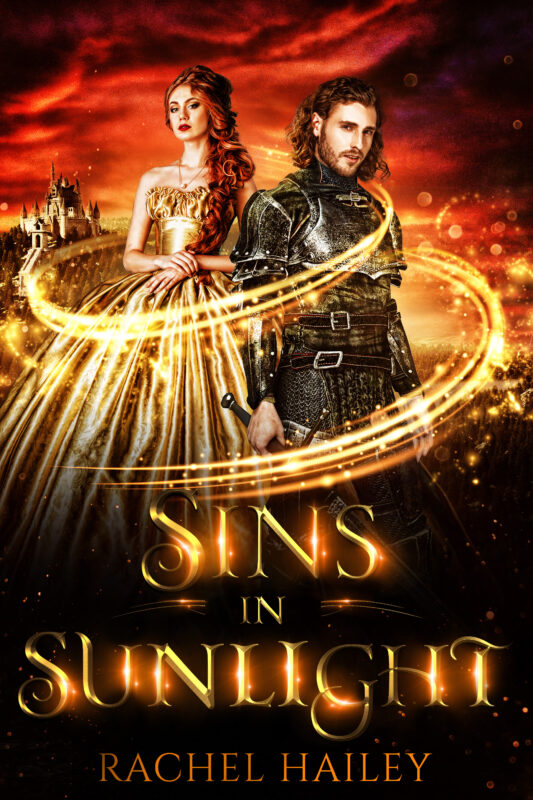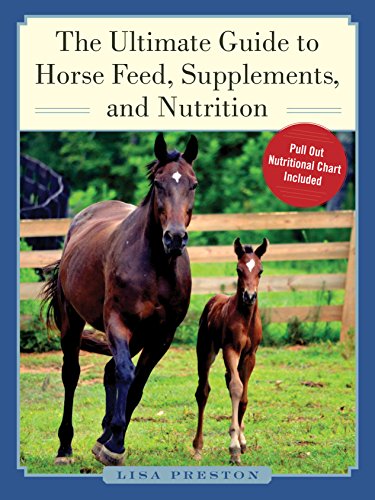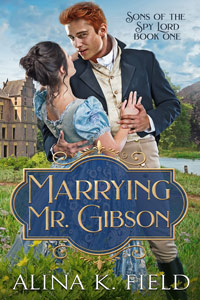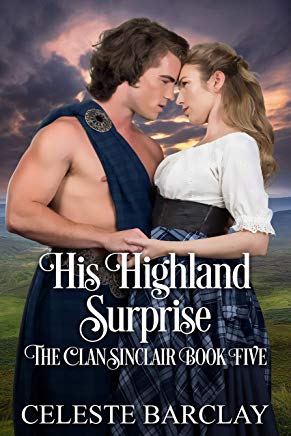White Space by Kidd Wadsworth
September 18, 2019 by Kidd Wadsworth in category Infused with Meaning by Kidd Wadsworth tagged as emotions, writers
Death is the absence of life. It is the white space on a painting, an empty hospital bed, a silent room, a closet of clothes. Death is the extinction of a species of only one. I closed my eyes. I woke, and he was gone. They took his body in the night. They came for the bed and the wheelchair by noon. We reduced his life to a photo and two columns in the newspaper. We sang his favorite songs. We spoke, “he was good friend, a wonderful father and an average golfer.”
Emotion is the currency of all good writers. But what if there is no emotion? What if death brings not regret, or anger, or longing, or even peace, but rather echoes? Did he call my name? I turned my head. Was that him, walking into his office?
Where is the salty taste of my tears? I become white space.
Can someone please tell me how to feel?
6 0 Read morePivotal Moments by Kidd Wadsworth
August 18, 2019 by Kidd Wadsworth in category Infused with Meaning by Kidd Wadsworth tagged as Emotion, Story Genius, writing
Weird. Dumb-ass. Late bloomer. How wonderfully my family described me. Yeah, you guessed it. I hated me, too. At fifteen, I had the social skills of a toilet brush. I spent most of my day desperately trying to say the right thing, so maybe I’d have some friends. Only in World History did I feel accepted. With her fantastic stories, my teacher brought history alive. She encouraged discussion. Even seemed to like me.
Forty-plus years later, I still remember how the room smelled of chalk and the musky perfume of the cheerleader who sat four chairs away; how it had a cooped-up warmth from the hour-long exhaling of twenty people. We sat crammed into small desks, the kind you slid into from the side with a writing surface big enough only for a single sheet of paper. Up front sat the teacher, the green blackboard behind her filling the entire wall.

Eager to express myself, I was quick to add my opinion on socialism. I spoke against welfare and social security. Rather, I said we should take care of each other. I didn’t believe the government needed to provide these services. In fact, I thought the government did a rather poor job. I suppose I didn’t express myself well; I wasn’t clear. Even to this day, I don’t fully understand why my opinion that people should look to themselves, rather than the government, to help their neighbor, should ignite such anger. Surely, at most, I was hopelessly naïve.
For a full twenty minutes, the class raged against me, calling me mean, harsh, unkind and unfeeling. Bewildered, I tried to explain my position, but the voices only grew louder more hateful. At the end of the class, the teacher asked me to stay behind. I stood beside her desk shaking from the effort to hold back my tears. Tall and skinny, I clutched my books in front of me, my shoulders rounded down against the recent blows. I thought she would apologize to me for letting the class get out of control. I thought she saw my hurt. Instead, very gently, she said, “I’d like to tell you about the Christ.”
Perhaps I should thank her. In one sentence she managed to teach me why the separation of church and state is absolutely necessary. After all, I’d just been told by a person, put in a position of authority by the government, that my political opinions were so heinous that I must be a heathen and in need of religious indoctrination, which she was eager to supply. I politely informed her that I regularly attended church.
*
Pivotal moments in our lives are marked by strong emotions: rage, hatred, shame, regret, fear, joy, hilarity, ecstasy. It is essential that we writers learn to convey these strong emotions to our readers. Story is emotion based. If we are not feeling, we’re not reading.[1] So how does a writer learn to convey emotion? How do we teach ourselves this skill? My solution is to feel the emotion myself by first writing about a pivotal moment in my life. By grappling with my own past, by dredging up a betrayal, or the bitterness of regret, by reliving a moment of pure joy, I find that my subsequent writing tastes real. Of course, when the emotions I’m reliving are negative, the cost to me is huge, because I must bleed again, before my characters bleed at all.
3 1 Read more
The Whoosh of Wings by Kidd Wadsworth
July 18, 2019 by Kidd Wadsworth in category Infused with Meaning by Kidd Wadsworth tagged as birds, fiction, Short Stories
I’d been writing for hours. My tired brain and I wandered into the garden. To pull a weed, I sat on the edge of a raised bed. I drifted into stillness. A breeze whispered. After five minutes, or was it ten, a bird…I didn’t dare turn…came to hover not two feet from my head. Whoosh, whoosh. Her wings beat down the air. Whoosh, whoosh.
I am a member of a small bible study group at church. At the beginning of our meetings before we study the words of the Christ, we talk about the past week, about the minutiae of our lives. I told my friends about the bird. Later, during the lesson, I lamented that I did not feel the Christ’s presence with me in my life.
Jose remarked, “Ah, but he was with you.”
“When?” I asked.
“In the whoosh of the wings.”

photo by Timothy Dykes
Since that day, I have begun to deliberately embed in my stories the hand of a loving God.
◊
“Tina, would it be alright, if I borrowed your new knife? You see, I was thinking of getting one, and I wanted to try it out.”
“Sure. Do you want me to bring it over?”
“No, that’s okay. I’ll come to you.”
“Is he letting you drive?”
“No, but I’ll take the bus. It’s such a beautiful day. I want to be out.”
At three-thirty in the afternoon, the knife wrapped in a dish towel and stuffed deep into the bottom of my purse, I got off the bus to begin the long walk up the hill to my home. The sun was on the river, like a painting, glistening off the rippling water. The sight of it, like the river had been sprinkled with glitter, transfixed me. I stood staring. Someone had placed a bench on the overlook.
I could sit for a while. I could rest.
My ribs hurt with every breath.
He’d be home at five.
I turned away from the river and the sparkling light. When I reached the rim of the valley and the street on which I lived, I passed by the dead and broken body of a deer, obviously hit by a car. My neighbor, sweet Elkie, ran out to speak to me. “Oh, isn’t it terrible. I saw the whole thing.”
She was all of five feet, slender, white hair. Her yard boasted a sign, “Wildlife Refuge,” which my husband claimed was her excuse for never mowing.
Hands on her face, she lamented, “It must have been frightened. Ran right out into the street.”
The repulsive, bloated corpse stank. Elkie waved a hand in front of her face. “Phew. Come inside. No one should smell death. It’s not healthy.”
“I can’t. I have to get home. It’s almost five.”
She patted my hand. “You know you’re always welcome.”
I hustled away. After all, I had to be there when he walked in, Tina’s new, strong, unbreakable, ceramic knife hidden in the deep front pocket of my apron. When he turned to put his change in the beer mug he kept by the door…
I trotted up the driveway; my cell rang. It was Holly—my beautiful Holly. I couldn’t answer it. Not now. Not when I was so close.
Ding—a voice mail.
I put on my apron, and nestled the knife into its hiding place. I stood by the door.
Tap, tap, tap.
What?

Photo by Rachael Moore
Outside, a cardinal sat on the window ledge tapping with his beak on the glass.
My husband’s 4X4 roared up the driveway.
Tap, tap, tap.
Holly loved cardinals. “They’re Christmas birds, Mom. Every day, all dressed up for a party.”
My heart raced. I couldn’t breathe. Holly? Did she need me? Was she hurt? I jerked around. My phone sat inches away on the counter. Shaking, I pressed voice mail. “Mom, I signed the lease. I’ve got my own apartment. It’s big enough for both of us. Come and live with me, Mom. You can get out. You can get out.”
He opened the door.
◊
I find that my stories are much more realistic, they ring true, now that I consciously add the whoosh of wings.
1 0 Read moreWhat is Story? By Kidd Wadsworth
June 18, 2019 by Kidd Wadsworth in category Infused with Meaning by Kidd Wadsworth tagged as external conflict, internal conflict, Lisa Cron, Story Genius, The Wizard of Oz, writing
My writing career was going nowhere. I’d imagined hundreds of thousands of dollars of income, fame, and something far more elusive, critical acceptance. My average annual income was hovering at $42.11; rejection letters carpeted the floor. Why? What was I doing wrong? I would have fixed it…if I’d known what “it” was.
Enter Story Genius by Lisa Cron, a book recommended by one of my writing buds—and the pieces fell into place. Cron’s hypothesis: All great stories have both an internal conflict and an external conflict. Because people procrastinate, because not a one of us wants to face our inner demons, great stories use an overwhelming external conflict to force the protagonist to grapple with his or her internal conflict.

The external conflict in the story forces Dorothy and her friends to face their fears. When Dorothy is kidnapped by the flying monkeys and taken into the lair of the Wicked Witch, the scarecrow hatches the rescue plan. Hmmm…smart and decisive. The cowardly lion is willing to fight the palace guards to save her. At the end of the story, when she must leave, the tinman weeps. Dorothy who, at the beginning, was willing to listen to munchkins (who told her to follow a stupid yellow brick road to find a wizard) learns that her future is in her own feet. Remember, the wizard did not get her home. She missed the balloon. Instead, she got home by clicking her heels together. Her actions, not those of a charlatan wizard, determined her future.
Thus, we see Cron’s classic pattern:
External Conflict → Compels the protagonist to face → Internal Conflict
The Wicked Witch of the West → forced Dorothy to face→ her fears about her own future
Before I put a single word on the paper, I ask myself: What is my character’s greatest fear? Then I craft an external event so powerful that my protagonist is forced to face that fear. I leave her no room to dither or escape. Finally, when she wrestles with her fear, when she grows, when she becomes more than she ever dreamed she could be, then I know, I’ve got a great story.
~Kidd
Welcome
A Slice of Orange would like to welcome Kidd Wadsworth. Her column, Infused with Meaning, will post here on the 18th of each month. We are thrilled to have her writing for us. We hope you enjoy her posts as much as we do. Welcome, Kidd!
4 0 Read more
Affiliate Links
A Slice of Orange is an affiliate with some of the booksellers listed on this website, including Barnes & Nobel, Books A Million, iBooks, Kobo, and Smashwords. This means A Slice of Orange may earn a small advertising fee from sales made through the links used on this website. There are reminders of these affiliate links on the pages for individual books.
Search A Slice of Orange
Find a Column
Archives
Featured Books
THE ULTIMATE GUIDE TO HORSE FEED, SUPPLEMENTS, AND NUTRITION
A comprehensive guide of the dos and don'ts of equine nutrition--featuring a full-color pull-out chart.
More info →MARRYING MR. GIBSON
She won't be forced into marriage to a nobleman's by-blow. He won't be trapped into marriage by a father he's never known.
More info →
HIS HIGHLAND SURPRISE
A confirmed bachelor with no intentions of settling down...
More info →Newsletter
Contributing Authors
Search A Slice of Orange
Find a Column
Archives
Authors in the Bookstore
- A. E. Decker
- A. J. Scudiere
- A.J. Sidransky
- A.M. Roark
- Abby Collette
- Alanna Lucus
- Albert Marrin
- Alice Duncan
- Alina K. Field
- Alison Green Myers
- Andi Lawrencovna
- Andrew C Raiford
- Angela Pryce
- Aviva Vaughn
- Barbara Ankrum
- Bethlehem Writers Group, LLC
- Carol L. Wright
- Celeste Barclay
- Christina Alexandra
- Christopher D. Ochs
- Claire Davon
- Claire Naden
- Courtnee Turner Hoyle
- Courtney Annicchiarico
- D. Lieber
- Daniel V. Meier Jr.
- Debra Dixon
- Debra H. Goldstein
- Debra Holland
- Dee Ann Palmer
- Denise M. Colby
- Diane Benefiel
- Diane Sismour
- Dianna Sinovic
- DT Krippene
- E.B. Dawson
- Emilie Dallaire
- Emily Brightwell
- Emily PW Murphy
- Fae Rowen
- Faith L. Justice
- Frances Amati
- Geralyn Corcillo
- Glynnis Campbell
- Greg Jolley
- H. O. Charles
- Jaclyn Roché
- Jacqueline Diamond
- Janet Lynn and Will Zeilinger
- Jaya Mehta
- Jeannine Atkins
- Jeff Baird
- Jenna Barwin
- Jenne Kern
- Jennifer D. Bokal
- Jennifer Lyon
- Jerome W. McFadden
- Jill Piscitello
- Jina Bacarr
- Jo A. Hiestand
- Jodi Bogert
- Jolina Petersheim
- Jonathan Maberry
- Joy Allyson
- Judy Duarte
- Justin Murphy
- Justine Davis
- Kat Martin
- Kidd Wadsworth
- Kitty Bucholtz
- Kristy Tate
- Larry Deibert
- Larry Hamilton
- Laura Drake
- Laurie Stevens
- Leslie Knowles
- Li-Ying Lundquist
- Linda Carroll-Bradd
- Linda Lappin
- Linda McLaughlin
- Linda O. Johnston
- Lisa Preston
- Lolo Paige
- Loran Holt
- Lynette M. Burrows
- Lyssa Kay Adams
- Madeline Ash
- Margarita Engle
- Marguerite Quantaine
- Marianne H. Donley
- Mary Castillo
- Maureen Klovers
- Megan Haskell
- Melanie Waterbury
- Melisa Rivero
- Melissa Chambers
- Melodie Winawer
- Meriam Wilhelm
- Mikel J. Wilson
- Mindy Neff
- Monica McCabe
- Nancy Brashear
- Neetu Malik
- Nikki Prince
- Once Upon Anthologies
- Paula Gail Benson
- Penny Reid
- Peter J Barbour
- Priscilla Oliveras
- R. H. Kohno
- Rachel Hailey
- Ralph Hieb
- Ramcy Diek
- Ransom Stephens
- Rebecca Forster
- Renae Wrich
- Roxy Matthews
- Ryder Hunte Clancy
- Sally Paradysz
- Sheila Colón-Bagley
- Simone de Muñoz
- Sophie Barnes
- Susan Kaye Quinn
- Susan Lynn Meyer
- Susan Squires
- T. D. Fox
- Tara C. Allred
- Tara Lain
- Tari Lynn Jewett
- Terri Osburn
- Tracy Reed
- Vera Jane Cook
- Vicki Crum
- Writing Something Romantic
Affiliate Links
A Slice of Orange is an affiliate with some of the booksellers listed on this website, including Barnes & Nobel, Books A Million, iBooks, Kobo, and Smashwords. This means A Slice of Orange may earn a small advertising fee from sales made through the links used on this website. There are reminders of these affiliate links on the pages for individual books.


